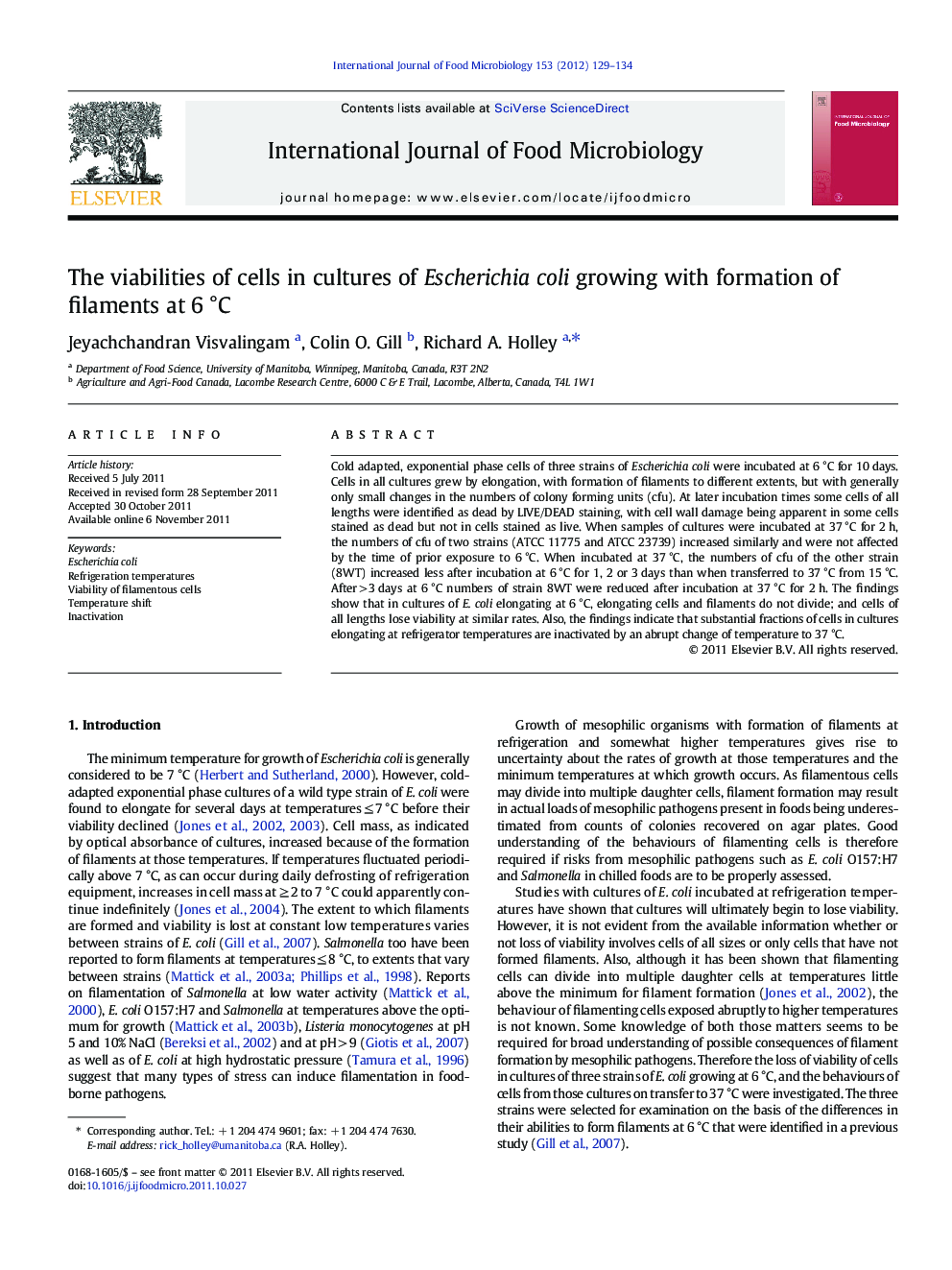| Article ID | Journal | Published Year | Pages | File Type |
|---|---|---|---|---|
| 4367830 | International Journal of Food Microbiology | 2012 | 6 Pages |
Cold adapted, exponential phase cells of three strains of Escherichia coli were incubated at 6 °C for 10 days. Cells in all cultures grew by elongation, with formation of filaments to different extents, but with generally only small changes in the numbers of colony forming units (cfu). At later incubation times some cells of all lengths were identified as dead by LIVE/DEAD staining, with cell wall damage being apparent in some cells stained as dead but not in cells stained as live. When samples of cultures were incubated at 37 °C for 2 h, the numbers of cfu of two strains (ATCC 11775 and ATCC 23739) increased similarly and were not affected by the time of prior exposure to 6 °C. When incubated at 37 °C, the numbers of cfu of the other strain (8WT) increased less after incubation at 6 °C for 1, 2 or 3 days than when transferred to 37 °C from 15 °C. After > 3 days at 6 °C numbers of strain 8WT were reduced after incubation at 37 °C for 2 h. The findings show that in cultures of E. coli elongating at 6 °C, elongating cells and filaments do not divide; and cells of all lengths lose viability at similar rates. Also, the findings indicate that substantial fractions of cells in cultures elongating at refrigerator temperatures are inactivated by an abrupt change of temperature to 37 °C.
► Escherichia coli produced filamentous cells at 6 °C and abrupt temperature shift to 37 °C inactivated a substantial fraction of cells. ► Vitality staining showed that filamentous cells were as viable as normal-sized cells. ► E. coli cells elongating at 6 °C do not divide at that temperature.
